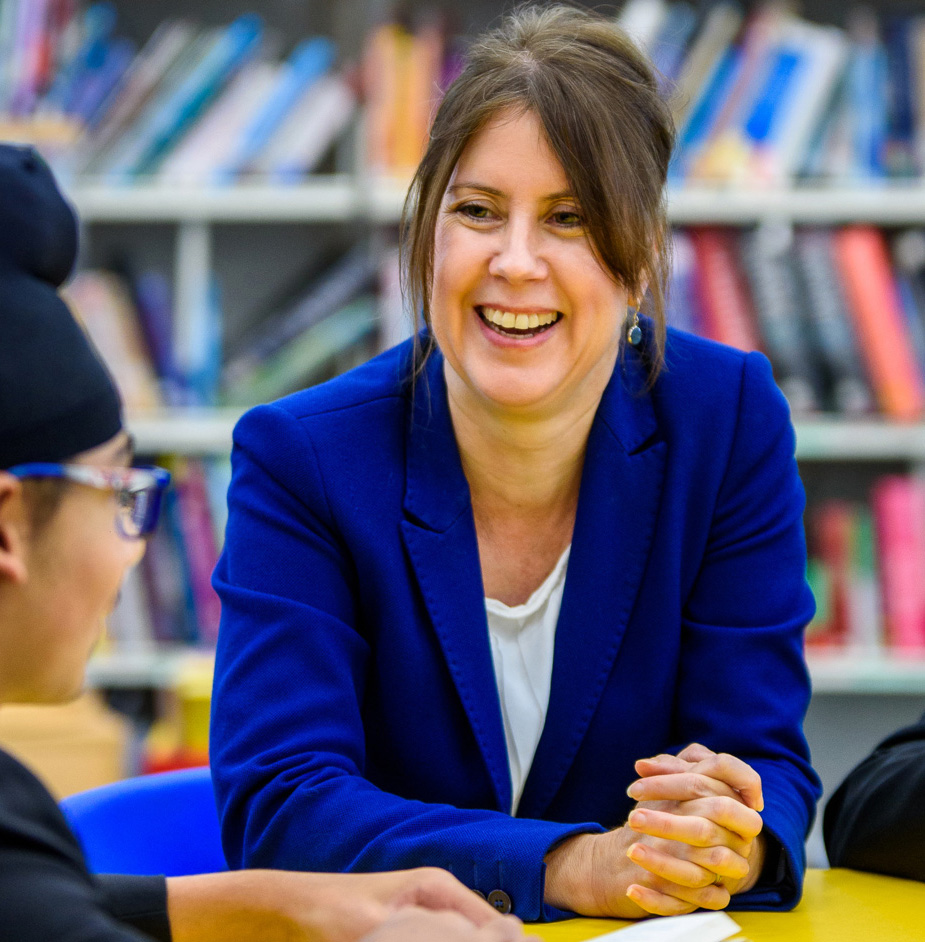|
GHS Connect #22 Monday 11th March
 Mia's notes Mia's notes
Thank you very much to Will Halsey, Maya Popovic and anyone else who was involved in meeting, greeting and looking after our Spanish delegation who visited on Friday to hear about careers provision at GHS. This was organised in conjunction with Teach First, who often approach us to hold events. This is undoubtedly down to our excellent relationship with them, built up over many years by Peter Mather.
Thank you also to Sarah Williams, who did a sterling job of promoting and encouraging good participation in World Book Day. Thank you and well done to everyone who dressed up!
We also had a number of trips and events, including the Year 9 play, and we will also have ‘Your Life, You Choose’ coming next week. Thank you to everyone for organising these events - they are really important in providing a rounded, full education for our students.
We continue our push on Year 8 and 9 behaviour. They are far from perfect yet, so please continue to log information, especially in the case of rudeness or foul language to staff. Please continue to support improving behaviour around the site by prioritising meet and greet and end and send, which will really improve things in corridors.
Have a wonderful week,
Mia
|
|
|
|
The week ahead
Monday
Normal Day
Tuesday
No Meeting
Wednesday
Briefing 8.15am in the library.
Thursday
Year 9 Subject Evening. View your appointments here
Pizza, coffee and chat in the library from 3.30pm
Friday
Normal Day
Notes
Year 11 Interim 3 due
|
|
|
David Clare explicitly shares common misconceptions with students, explains why they are wrong, and how to amend these.
|
|
Maram Alsubaie promotes digital literacy by using 2D Design with students, and introduces each instruction in stages, in order to manage the working memory.
|
|
Pravina Varsani contextualises learning and supports enrichment by playing music linked to practical content.
|
|
Abdullah Khan uses models and diagrams on the visualiser to aid explanations and support students to conceptualise abstract concepts.
|
|
|
Post 16 - the home straight
Before they depart for study leave on Friday 10th May, A Level students have just 7 weeks remaining or, to heighten the collective urgency, only 31 full school days.
For most, course content has been covered, university decisions have been received and students have selected their dream destinations. Now the collective focus turns to ensuring that the students’ revision of content is sustained and purposeful to ensure that they meet the conditions of their offers.
Jess, last week, shared the importance of ensuring that revision tasks are clear and, also, the power of supporting this revision by: modeling in class, providing physical resources and directing students to e-resources on Google Classroom.
This week, I would like to focus on the efficacy of our students’ revision. Getting revision right has never been more important because - put simply - students forget things; this is rather problematic as they are being assessed by linear examinations at the end of a two year course…
Ebbinghaus’ forgetting curve is a visual representation of the forgetting process, showing that loss of memory over time is exponential:
|
|
|
- The good news is that it is possible to overcome the forgetting curve by revising material at regular intervals and interleaving course content.
- Each repetition increases the interval before the next repetition is needed.
- This approach is, clearly, much more effective than cramming.
HOW CAN STUDENTS OVERCOME THE FORGETTING CURVE?
Students must not only ensure that they are revising content at regular intervals, but that revision must be effective.
Many students tend to go for the safe ground when revising – watching YouTube videos, highlighting, re-reading and re-writing notes – and tend to avoid revising what they do not understand.
In order to effectively revise, they must be proactive in auditing their memory, thereby identifying areas and topics of weakness. Effective revision strategies will range from student to student and course to course but, certainly, there is proven success in students’ use of: Cornell notes, chunking and flash cards as active revision approaches.
Guides on each of these can be found by clicking here:
Cornell notes
Chunking
Flash cards
I appreciate that an awful lot has been asked of Post 16 teachers over the course of this year and, as we enter into this crucial home straight, I want to thank you all for going the extra mile and your continued efforts with this cohort. This photo, of year 13 in all their glory, hopefully serves as a reminder of why we are here, doing this job:
Richard
|
|
|
|
Inclusion Updates
SEN
Over 10% of each year group has a Speech, Language and Communication Need.
Why not give one of the learning and teaching ideas below a go?
|
|
|
|
CP Updates
Some changes have been made to the definition of safeguarding:
Safeguarding and promoting the welfare of children is defined as:
- Providing help and support to meet the needs of the children as soon as problems emerge.
- Protecting children from maltreatment, whether that is within, or outside the home, including online.
- Preventing impairment of children's physical and mental health or development.
- Ensuring that children grow up in circumstances consistent with the provision of safe and effective care.
- Promoting the upbringing of children with their birth parents, or otherwise their family network, through a kinship care arrangement, whenever possible and where this is in the best interests of the children.
- Taking action to ensure that all children have the best outcomes in line with the outcomes set out in the Children's Social Care Network Framework.
Please remember to report any information on CPOMS
|
|
Inclusion Hero
A huge shout out to Aya Kebbal (TA in Learning Support). This week she supported our SEN cohort with small group teaching. Students were focussed and engaged through the process.
Thank you so much for all your ongoing support.
Gurvinder
|
|
|
Bright Spot
This week Adam Bush has nominated Stuart Prentice. He says:
Stuart, our ‘CCTV detective’, for whom no surveillance job is too big or too small.
He can always be relied upon to act swiftly, with excellent attention to detail – investigating incidents and tracking live situations when required – so that students are, rightly, held to account for any misbehaviour.
|
|
|
Character Champions Hot Chocolate
Every week, four students - nominated by departments - will be celebrated for displaying excellent character in their lesson. This week, students celebrated with postcards and hot chocolate with Mia.
The following students were rewarded and they, in turn, wanted to celebrate certain members of staff at GHS. (Comments are in their own words.)
|
|
|
Heer Matha 8W3
Nominated Mr McCreeth: “He has been my Computer Studies teacher since Year 7 and he has always made the subject fun. He puts a lot of effort into making sure we all feel happy and safe. When we have any trouble, he is always easy to talk to.”
Sayuri Mistry 10W3
Nominated Ms K Thomas: “She said really nice things at parents evening and nominated me for a trip. She gives great advice for English and helps me a lot.”
Farrhan Bawa 11T1
Nominated Mr Lewis: “He said amazing things about me on parents evening.”
Emer Saroya 8M1
Nominated Mr Merchant: “He has helped me improve in English.”
|
|
|
|
Attendance Tracker
To view the attendance tracker, click here
|
|
For the latest X/Twitter feed from @ghsofficial, click here

|
For the latest Instagram feed from @greenford_high_official, click here

|
|
|
 |
08 Mar 2024
A massive thank you to everyone who contributed to a very successful visit from 23 Spanish educators and Teach First.
|
|
|